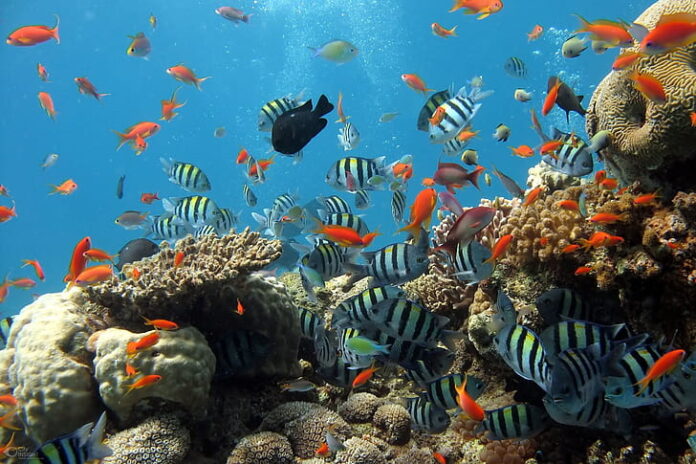Cayman’s reef ecosystem is in crisis, and renowned underwater photographer and conservationist Courtney Platt is calling on residents and visitors alike to stop eating locally caught reef fish before it’s too late.
Platt, who has spent over four decades documenting the islands’ underwater life, says both reef fish and the coral they depend on are disappearing at a devastating rate. His campaign urges consumers to avoid species like parrotfish (known locally as squabs)—which play a vital role in maintaining beaches and coral health—until their populations recover.
“If you can afford to eat anything else, then please choose to eat anything else,” Platt told Cayman News Service, stressing that continued consumption of reef fish could push local stocks to extinction within just a few years.
When Platt began diving in the 1980s, Cayman’s reefs teemed with marine life. Today, overfishing, climate change, and coastal development have caused a dramatic collapse. He said parrotfish are among the most critical losses, describing the once-common blue parrotfish as “the unicorns of the sea” because sightings are now so rare.
“These fish are super important to our beaches,” Platt explained. “They literally create sand by feeding on coral. Without them, beach erosion will only get worse.”
To raise awareness, Platt plans to visit schools, churches, and community groups, using his striking photographs to illustrate the decline and inspire change. His message is simple: stop eating reef fish and encourage others to do the same.
He also points to lionfish as a sustainable alternative. The invasive predator is abundant in Cayman waters and poses a serious threat to native species. “In this case, overfishing works in our favor,” he said. “We should eat as many lionfish as possible.”
Platt emphasized that this crisis extends beyond environmental concerns—it’s about protecting Cayman’s tourism industry and cultural heritage. “The vibrant underwater world that once drew divers and photographers from around the world is vanishing,” he said. “If we don’t act now, we lose not just our fish, but part of what makes Cayman special.”
While stricter fishing laws will eventually be necessary, Platt believes community awareness and consumer choice can make an immediate impact. “Consumers can either be part of the problem or part of the solution,” he said.
He’s now seeking volunteers and speaking invitations to expand his campaign and hopes to make it socially unacceptable to consume reef fish until the populations rebound.
“It’s horrendous how few people realize what’s happening beneath the surface,” Platt said. “We need everyone to understand that if we don’t stop now, there will simply be none left.”

 4 months ago
19
4 months ago
19

 English (US) ·
English (US) ·